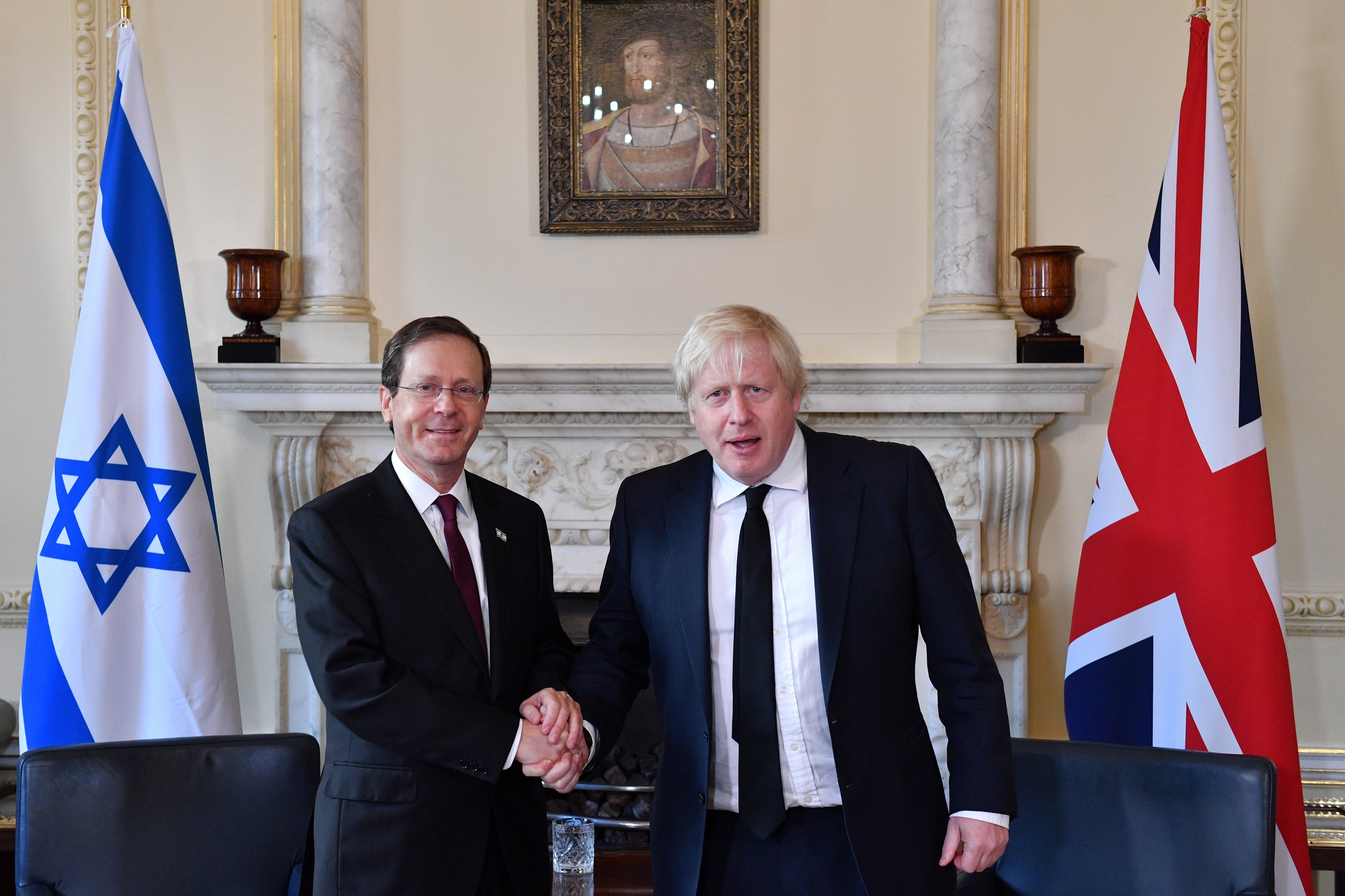UK kicks off talks on new Israeli trade deal to boost services sector
The UK expects the new deal to increase services exports to Israel by £78 million.

Your support helps us to tell the story
From reproductive rights to climate change to Big Tech, The Independent is on the ground when the story is developing. Whether it's investigating the financials of Elon Musk's pro-Trump PAC or producing our latest documentary, 'The A Word', which shines a light on the American women fighting for reproductive rights, we know how important it is to parse out the facts from the messaging.
At such a critical moment in US history, we need reporters on the ground. Your donation allows us to keep sending journalists to speak to both sides of the story.
The Independent is trusted by Americans across the entire political spectrum. And unlike many other quality news outlets, we choose not to lock Americans out of our reporting and analysis with paywalls. We believe quality journalism should be available to everyone, paid for by those who can afford it.
Your support makes all the difference.Negotiations on a new trade deal with Israel are set to begin on Wednesday as the UK looks to boost its services industry.
Trade Secretary Anne-Marie Trevelyan will meet Israeli Ambassador Tzipi Hotovely in London to kick off talks on expanding the current UK-Israel deal to include services exports.
Trade between the UK and Israel is currently worth £5 billion a year, but the existing free trade agreement only covers trade in goods, meaning services account for just a third of trade between the two countries.
The UK hopes to take advantage of Israel’s booming services sector, which has grown by more than 50% in the past 10 years, and the Government expects a new agreement to boost UK services exports to Israel by £78 million per year.
Ms Trevelyan said: “The UK and Israel are both modern, hi-tech services superpowers, but our current trading relationship is based on an agreement from 1995, before smartphones, the internet and digitally delivered services transformed the global economy.
“We want a deal that will play to British strengths, while stimulating innovation and increasing opportunities for small and medium-sized enterprises across the UK. Combining the power of our economies in a revamped trade deal will boost trade, support jobs and help take our economic relationship to the next level.”
Potential opportunities include procurement contracts for the £34 billion Tel Aviv Metro project and expanding on the Leeds-Israel Innovation Healthtech Gateway that has already seen Leeds Teaching Hospitals partner with Israeli health technology firms.
Amanda Tickel, head of tax and trade policy at consultants Deloitte UK, said: “We welcome negotiations between the UK and Israel on an enhanced FTA, which could take our bilateral trade and investment relationship to a new level.
“Both the UK and Israel are services-led economies with highly successful tech sectors, yet the existing terms of trade contain only limited provisions in these areas. This negotiation represents an exciting opportunity for UK services exporters, making it easier to trade across borders, to travel and work in each economy and support our digital innovators.”
Nick Thomas-Symonds, Labour’s shadow international trade secretary, said: “The Government has fallen behind – woefully – in the delivery of their manifesto commitment to secure 80% of UK trade covered by free trade agreements by the end of 2022, and with the Tory party in chaos it seems that will be yet another broken promise.
As these negotiations get under way it’s vital that ministers use this opportunity to promote jobs and our values
“As these negotiations get under way it’s vital that ministers use this opportunity to promote jobs and our values, including improving better conditions for workers and human rights. Too often, ministers have failed to stand up for Britain at the negotiating table.”
The trade negotiations follow the signing of a memorandum of understanding between the UK and Israel in November 2021 committing both countries to developing a new “bilateral roadmap” covering cooperation in diplomacy, trade, defence and development along with other areas.
But human rights campaign group Amnesty International raised concerns that any deal would allow goods produced in Israeli settlements within the Occupied Palestinian Territories to be described as coming from Israel.
Peter Frankental, Amnesty’s economic affairs director for the UK, said: “In their haste to agree a shiny new trade deal with Israel, there’s a distinct danger that UK negotiators will fail to ensure absolute clarity over the precise origins of goods destined for the UK market.
“Unfortunately, the faulty EU-Israel trade arrangement is currently allowing Israeli exporters to pass off settlement goods as Israeli ones. A UK free trade agreement needs to be distinctly better than this.”